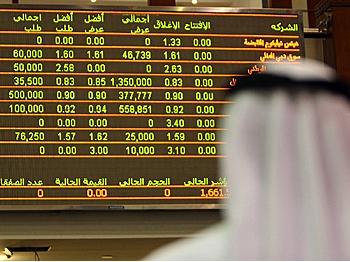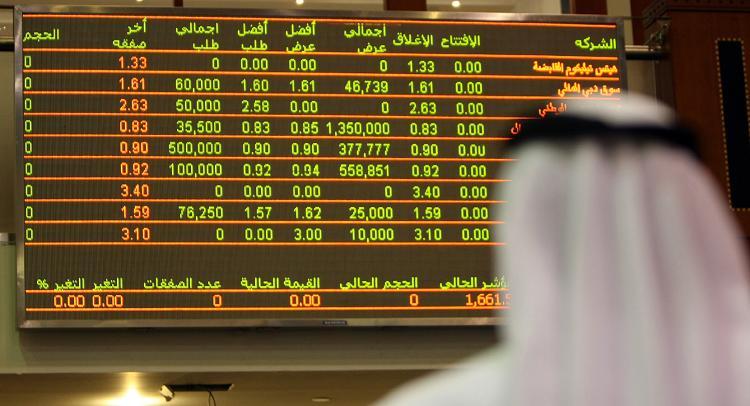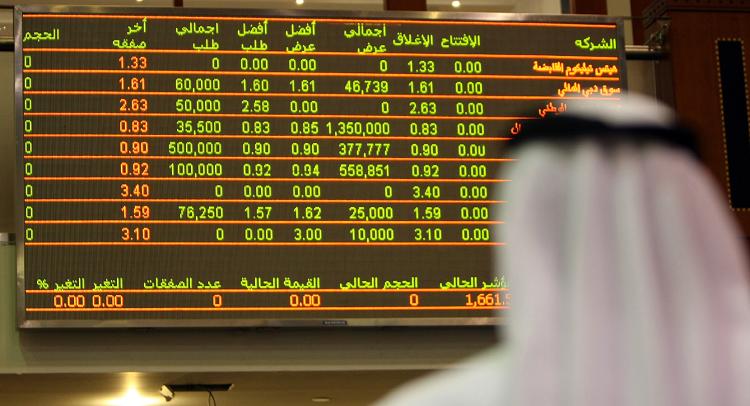Once the crown jewel of the Gulf, financially troubled Dubai is now struggling to escape a large public debt.
It dreamed for years to become the region’s financial and tourism hub, accumulating piles of debt along the way, rumored to be roughly $80 billion.
In November 2009, Dubai shocked the world when state owned Dubai World, an investment firm for the Dubai government, announced an urgent need to delay the payment of $26 billion of its debt for six months. To finance its growth ambitions, Dubai racked up a debt of $59 billion, more than half of the country’s debt.
At issue is the financial finagling that gripped most of the world before the most recent financial crisis and the belief, besides information to the contrary, that money was not an issue and that the Dubai government would come to the rescue during times of trouble, throwing due diligence and caution to the wind.
“Lenders were eager to pour money into Dubai because of what they saw as Dubai World’s implicit financial backing by the Dubai and Abu Dhabi governments. While loan documents apparently stated there was no government guarantee, many lenders seemed to think the situation was like that of Fannie Mae and Freddie Mac in the U.S.,” suggested professors in one of a series of articles published by Knowledge @ Wharton (KW), the publishing arm of the University of Pennsylvania.
In an initiative to show the world that Dubai’s government means business and has a good handle on the situation, Sheikh Maktoum bin Mohammed bin Rashid Al Maktou, vice president and prime minister of the UAE and Ruler of Dubai, relieved the chairmen of Dubai Holding LLC and Dubai World and the head of Emaar Properties PJSC of their chairmanship in the company last year.
Worldwide stock markets reacted swiftly, with the Dow Jones Industrial dropping by over 1 percent that day and oil prices took a plunge.
The stock market, including oil prices, recovered quickly, edging up a little, as investors gained confidence that relief from oil-rich Abu Dhabi and others were in sight and that a deal could be worked out.
Distancing the Dubai government from the Dubai World’s troubles, Abdulrahman Al Saleh, director general of Dubai’s financial arm, stated that Dubai was under no obligation to bail out the firm, as it had not provided a sovereign guarantee for deals undertaken by this firm, according to a recent article on the Finance Web blog posting.
In response, Moody’s and Standard and Poor’s lowered Dubai’s state-owned companies to junk status, and put Dubai’s financing firms on negative watch because of their lending to Dubai World.
Credit analysis firm CMA included Dubai among countries with the world’s riskiest sovereign debt, with the likes of Argentina, Venezuela, Greece, Iceland, and others, at the end of last year.
Wharton finance professor Jeremy J. Siegel suggested that this default issue “will turn out to be ‘a very minor affair’ for the world economy and financial markets. It doesn’t mark any sort of new shoe dropping, or the start of some emerging-market crisis, or the start of some domino situation at all,” he says, arguing that the world is emerging from the last crisis fairly well.
The professors suggest that the world has weathered the U.S. financial crisis, and thus, Dubai is like a drop in the bucket and might just make a few small ripples.
“This is a very different circumstance,” said finance professor Richard Marston in the KW report. “Market participants have been through the wringer and have reassessed risk.”
At the end of November 2009, two Abu Dhabi lenders, al Hilal Bank and the National Bank of Abu Dhabi, extended $5 billion in credit to help the neighboring state.
In mid-December, oil-rich Abu Dhabi contributed $5 billion—not the $10 billion publicized by the media—to bail out Dubai World. Latest media releases suggest that the $5 billion was actually part of a commitment made by Abu Dhabi in the past.
Abu Dhabi’s injection prevented the December default of a $4.1 billion Islamic bond by Nakheel, a subsidiary of Dubai World. Alas, construction has been indefinitely put on hold for many reasons that are not just of financial origin.
The UAE’s central bank released a statement that it would provide financial support to local and foreign banks, also in the same month.
Aidan Birkett of Deloitte LLP was hired to spearhead the restructuring effort of the remaining $22 billion debt. On Jan. 19 Bank of Tokyo-Mitsubishi became part of the six-member restructuring team for Dubai World’s debt.
Dubai inaugurated Burj Park Island with big fanfare on Jan. 4, a park on Burj Dubai Lake with a lot of leisure attractions, including the Dubai Mall with 1,200 retail outlets and the 1,717 foot Burj Khalifa, formerly Burj Dubai, the tallest skyscraper in the world at a cost of $800 million. Dubai expects thousands of tourists that could help pay off the mega project over the coming years that cost roughly $1.5 billion in total.
Dubai’s government is bracing for a budget deficit of $1.6 billion in 2010, equivalent to 2 percent of the city state’s GDP. It is also projecting $8 billion in revenues, but with expenses of $9.6 billion, according to a recent report by the Dubai Chamber of Commerce & Industry. Infrastructure projects will continue, albeit at a slower pace.
The deficit is blamed on investing activities in infrastructure developments, including the Burj Park project, metro links, highways, and other real estate projects. Vacancy rates are high, as expatriate workers returned to their home countries after losing their jobs. Commercial and private real estate prices that fell in 2009, are expected to fall another 10 percent in 2010, while remaining flat in 2011, according to the Property Wire Web site.
“Dubai’s construction and real estate market was particularly vulnerable to correction in 2009,” said a report by the Dubai-based ShuaaCapital Psc, a leading financial firm. “Activity was driven to a large extent by speculative demand for property and financed by debt.
“As a result, the sector suffered a double whammy last year: the sharp drop in demand for accommodation as the economy slowed, jobs were lost and expatriates returned home combined with the credit crunch that made mortgages and building financing nearly impossible to secure.”
It dreamed for years to become the region’s financial and tourism hub, accumulating piles of debt along the way, rumored to be roughly $80 billion.
In November 2009, Dubai shocked the world when state owned Dubai World, an investment firm for the Dubai government, announced an urgent need to delay the payment of $26 billion of its debt for six months. To finance its growth ambitions, Dubai racked up a debt of $59 billion, more than half of the country’s debt.
At issue is the financial finagling that gripped most of the world before the most recent financial crisis and the belief, besides information to the contrary, that money was not an issue and that the Dubai government would come to the rescue during times of trouble, throwing due diligence and caution to the wind.
“Lenders were eager to pour money into Dubai because of what they saw as Dubai World’s implicit financial backing by the Dubai and Abu Dhabi governments. While loan documents apparently stated there was no government guarantee, many lenders seemed to think the situation was like that of Fannie Mae and Freddie Mac in the U.S.,” suggested professors in one of a series of articles published by Knowledge @ Wharton (KW), the publishing arm of the University of Pennsylvania.
In an initiative to show the world that Dubai’s government means business and has a good handle on the situation, Sheikh Maktoum bin Mohammed bin Rashid Al Maktou, vice president and prime minister of the UAE and Ruler of Dubai, relieved the chairmen of Dubai Holding LLC and Dubai World and the head of Emaar Properties PJSC of their chairmanship in the company last year.
The World Reacts
Worldwide stock markets reacted swiftly, with the Dow Jones Industrial dropping by over 1 percent that day and oil prices took a plunge.
The stock market, including oil prices, recovered quickly, edging up a little, as investors gained confidence that relief from oil-rich Abu Dhabi and others were in sight and that a deal could be worked out.
Distancing the Dubai government from the Dubai World’s troubles, Abdulrahman Al Saleh, director general of Dubai’s financial arm, stated that Dubai was under no obligation to bail out the firm, as it had not provided a sovereign guarantee for deals undertaken by this firm, according to a recent article on the Finance Web blog posting.
In response, Moody’s and Standard and Poor’s lowered Dubai’s state-owned companies to junk status, and put Dubai’s financing firms on negative watch because of their lending to Dubai World.
Credit analysis firm CMA included Dubai among countries with the world’s riskiest sovereign debt, with the likes of Argentina, Venezuela, Greece, Iceland, and others, at the end of last year.
Wharton finance professor Jeremy J. Siegel suggested that this default issue “will turn out to be ‘a very minor affair’ for the world economy and financial markets. It doesn’t mark any sort of new shoe dropping, or the start of some emerging-market crisis, or the start of some domino situation at all,” he says, arguing that the world is emerging from the last crisis fairly well.
The professors suggest that the world has weathered the U.S. financial crisis, and thus, Dubai is like a drop in the bucket and might just make a few small ripples.
“This is a very different circumstance,” said finance professor Richard Marston in the KW report. “Market participants have been through the wringer and have reassessed risk.”
Coming to the Rescue
At the end of November 2009, two Abu Dhabi lenders, al Hilal Bank and the National Bank of Abu Dhabi, extended $5 billion in credit to help the neighboring state.
In mid-December, oil-rich Abu Dhabi contributed $5 billion—not the $10 billion publicized by the media—to bail out Dubai World. Latest media releases suggest that the $5 billion was actually part of a commitment made by Abu Dhabi in the past.
Abu Dhabi’s injection prevented the December default of a $4.1 billion Islamic bond by Nakheel, a subsidiary of Dubai World. Alas, construction has been indefinitely put on hold for many reasons that are not just of financial origin.
The UAE’s central bank released a statement that it would provide financial support to local and foreign banks, also in the same month.
Aidan Birkett of Deloitte LLP was hired to spearhead the restructuring effort of the remaining $22 billion debt. On Jan. 19 Bank of Tokyo-Mitsubishi became part of the six-member restructuring team for Dubai World’s debt.
Holding the Head High in a Contracting Economy
Dubai inaugurated Burj Park Island with big fanfare on Jan. 4, a park on Burj Dubai Lake with a lot of leisure attractions, including the Dubai Mall with 1,200 retail outlets and the 1,717 foot Burj Khalifa, formerly Burj Dubai, the tallest skyscraper in the world at a cost of $800 million. Dubai expects thousands of tourists that could help pay off the mega project over the coming years that cost roughly $1.5 billion in total.
Dubai’s government is bracing for a budget deficit of $1.6 billion in 2010, equivalent to 2 percent of the city state’s GDP. It is also projecting $8 billion in revenues, but with expenses of $9.6 billion, according to a recent report by the Dubai Chamber of Commerce & Industry. Infrastructure projects will continue, albeit at a slower pace.
The deficit is blamed on investing activities in infrastructure developments, including the Burj Park project, metro links, highways, and other real estate projects. Vacancy rates are high, as expatriate workers returned to their home countries after losing their jobs. Commercial and private real estate prices that fell in 2009, are expected to fall another 10 percent in 2010, while remaining flat in 2011, according to the Property Wire Web site.
“Dubai’s construction and real estate market was particularly vulnerable to correction in 2009,” said a report by the Dubai-based ShuaaCapital Psc, a leading financial firm. “Activity was driven to a large extent by speculative demand for property and financed by debt.
“As a result, the sector suffered a double whammy last year: the sharp drop in demand for accommodation as the economy slowed, jobs were lost and expatriates returned home combined with the credit crunch that made mortgages and building financing nearly impossible to secure.”






